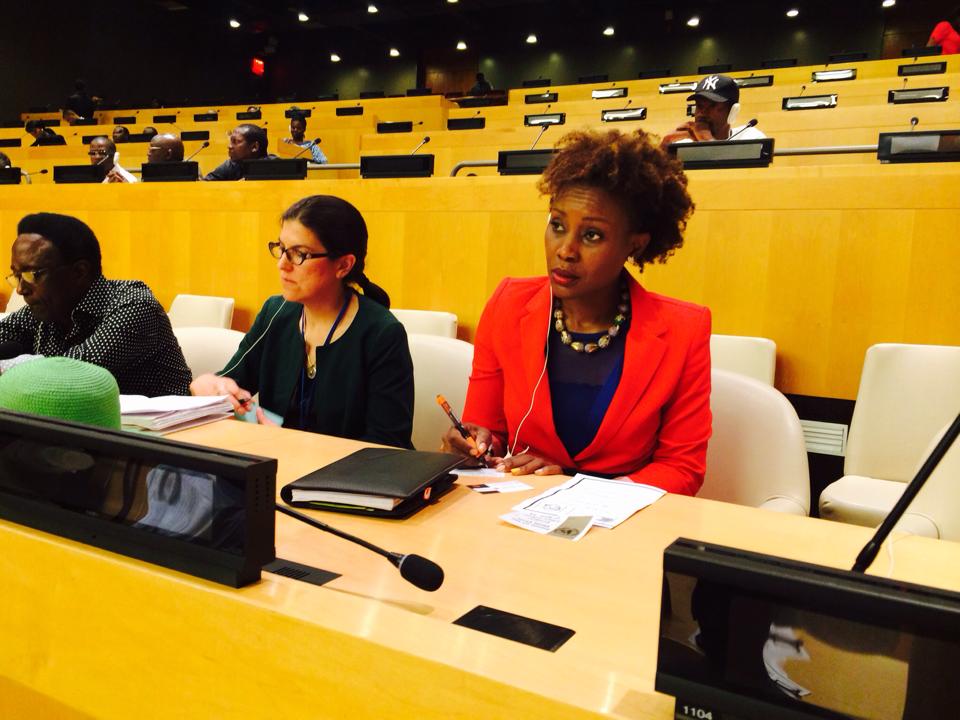Interview with Sigga Jagne
EBOLA: We're too interlinked to ignore what happens anywhere in the world
November 3, 2014 | Revolution Newspaper | revcom.us
Editors' note: The following is a slightly edited transcript of an interview on the Michael Slate Show with Sigga Jagne—a health care professional originally from the West African nation of Gambia, currently working in the U.S. She is the former HIV-AIDS program director for the Kentucky Department of Public Health. And she's currently the executive director of Signara Global Solutions.
Michael Slate: Welcome. Let me ask you this. You also talk about how many health care personnel—a lot of people have been very inspired by the doctors and nurses and other health care personnel that have gone to West Africa and basically said, "I want to go get on the front lines and I'm going to serve humanity here and I'm actually going to try and really help this, help people beat back this disease and survive it." And, at the same time, though, you have people who, you know, when they get there and then there's similar people in these countries that actually have all the good desires and all the good intentions in the world to do this, but people find themselves facing a situation where you have poorly trained people and you have people who are poorly equipped against Ebola and misinformed about how to even protect themselves. And the gear they get, the equipment they get, is not actually designed to... to actually protect these caregivers, which is... seems to be a really just terrible situation.
"It's like having a tragedy and adding a tragedy upon it. And the sad part about this is that we know how to stop this. This disease had resulted in Central Africa since the '70s. It has been fought before and been controlled successfully."
Sigga Jagne: It is. You know, and it's a tragedy. It's like having a tragedy and adding a tragedy upon it. And the sad part about this is that we know how to stop this. This disease had resulted in Central Africa since the '70s. It has been fought before and been controlled successfully. Now, this is the first time it is going in an urban area with a lot of people so there... so that is a factor in how quickly it has spread.
But really, it's the failures within the processes, within the systems, like you said. Well-meaning people, qualified doctors, whether they're in Europe or in other countries, going to volunteer, to assist. And then they're overwhelmed by the lack of infrastructure. They are overwhelmed by the lack of simple things like personal protective equipment, by the lack of good protocol and just such poor public health in general. It sort of adds a layer of difficulty of turning this and of tragedy.
You know, we see how many health care workers have succumbed to Ebola just because they didn't have the right personal protective equipment, whether it's masks or gloves or a face shield or, an apron that they needed to wear, an impenetrable apron that they needed to wear, you know, things like this?
It's unfortunate, but we're suddenly I hope, whether from the World Health Organization, the United Nations or the European Union or all of the international bodies, as well as the countries, a leadership of the countries themselves, that this is an eye-opening for the world in general and it is a wakeup call that we are too interlinked, that what happens in one part of the globe can no longer be ignored by any other part just because of how interlinked we are in.
"It's like there are certain lives that are not equal enough. Some lives are more equal, so if it's African babies, African mothers, African children, African people somewhere, then we don't see it, you know, at least not until American medicals that were infected were infected, that the world decided to actually take action."
...I mean just look at the handling of this whole epidemic, I mean this whole outbreak. It happened. It was... of course, we've known about it since December 2013. But it was not until, you know, American doctors got infected, like you said, that the world woke up. It's like there are certain lives that are not equal enough. Some lives are more equal, so if it's African babies, African mothers, African children, African people somewhere, then we don't see it, you know, at least not until American medicals that were infected were infected, that the world decided to actually take action.
But, you know, this has been happening for a while. The countries where it is taking place, as well as certain organizations have been calling the world's attention to this like we've been ignorant. In this business, there are many stories like that. That's why I was saying that this is a point, you know, there's a lesson to learn for the world that, you know, we no longer can ignore the resource issues just because it's happening in another part of the world or just because it's not profitable. I mean it's... you know, it's mind-blowing.
Michael Slate: All right, Sigga, thank you very much for joining us today.
Volunteers Needed... for revcom.us and Revolution
If you like this article, subscribe, donate to and sustain Revolution newspaper.

